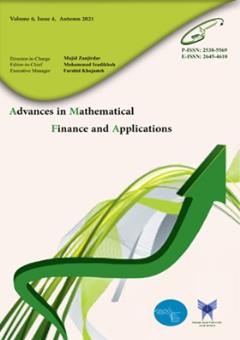-
-
-
Open Access Article
1 - Bank Lending Channel Reaction to Financial Suppression Policies
Fatemeh Johari Gholamali Haji Nader Mehregan Ahmad SarlakIran's economy has been suffering from the dominance of fiscal policies and financial repression for many years, so that this issue has become one of the structural challenges of the country's economy. Banks, as one of the most important parts of macroeconomics, play an MoreIran's economy has been suffering from the dominance of fiscal policies and financial repression for many years, so that this issue has become one of the structural challenges of the country's economy. Banks, as one of the most important parts of macroeconomics, play an important role in the mechanism of transferring monetary policy to the real sector of the economy. Monetary policy transmission operates through various channels: the lending channel, the balance sheet channel, and the capital channel. Examining how the role of banks in monetary policy transmission is affected by government fiscal repression policies provides useful information for monetary and financial policymakers and banking activists. In this study, we tried to investigate the effect of financial repression on the monetary policy transmission through the lending channel of the country's banks. First, an indicator for the financial repression variable was defined using the PCA method, and then the relationship was estimated using the SVAR method and instantaneous response functions and using seasonal data for the period 1999- 2017. The results show that financial repression policies have a significant effect on bank lending and reduce banks' lending power. This issue, along with the negative real interest rate of bank facilities, causes a decrease in the profitability index and loss of banks. Manuscript profile -
Open Access Article
2 - Investigation And Evaluation Of Monetary Policy Transmission Channels In The Iranian Economy
Parisa Rafiei Shamsabadi Gholamali Haji seysd fakhrodin Fakhr HosseiniMonetary policy plays an important role in managing the economy, but success in applying this policy requires that the monetary authority understands the process of monetary transmission in the economy. Thus, it is not possible to study the effects of monetary policy on MoreMonetary policy plays an important role in managing the economy, but success in applying this policy requires that the monetary authority understands the process of monetary transmission in the economy. Thus, it is not possible to study the effects of monetary policy on the economy without studying the channels of monetary policy transmission. Therefore, in this paper, the effect of a monetary policy through different channels of monetary policy transmission on inflation and production in terms of time process and extent of effectiveness by using Iran's data over the period of (1960 to 2018) through the method of new Keynesian dynamic stochastic general equilibrium have been investigated. The accuracy of the model was confirmed by analysing the impulse-response functions and calculating the method of moments of the second order. The results of the model show that the effects of monetary policy shock are transmitted through the nominal growth rate of money, the real exchange rate on inflation and production without oil. Also, this effects by increasing the interest rates on bank deposits through the monetary base lead to increase production without oil, and through the monetary base, the exchange rate and the price index of domestic goods reduce inflation. Manuscript profile
List of Articles Gholamali Haji
-
The rights to this website are owned by the Raimag Press Management System.
Copyright © 2021-2024


